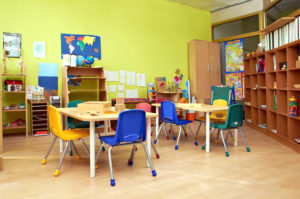 From 1990 to 2013, the percentages of three- and four-year-olds enrolled in preprimary programs increased by 9% and 12% respectively. That means that more families are realizing how big an effect local preschool programs can have on their children’s grade school readiness. It’s certainly true that academic preschool activities can allow children to reach higher levels of achievement in terms of classroom learning, but parents should also take other benefits of preschool into account. Case in point: the connection between preschool enrollment and the development of social skills.
From 1990 to 2013, the percentages of three- and four-year-olds enrolled in preprimary programs increased by 9% and 12% respectively. That means that more families are realizing how big an effect local preschool programs can have on their children’s grade school readiness. It’s certainly true that academic preschool activities can allow children to reach higher levels of achievement in terms of classroom learning, but parents should also take other benefits of preschool into account. Case in point: the connection between preschool enrollment and the development of social skills.
Sharing, Cooperation, and Role-Playing
Very young children will engage in what’s referred to as “parallel play,” wherein they’ll play beside other children without much interaction. In preschool, children start to transition into interactive play, allowing them to engage with other children. This type of play often involves make-believe scenarios, which lets them explore grown-up situations like teaching, shopping, playing house, and more.
This is about so much more than playing pretend, though. In these scenarios, children start to understand sharing, cooperation, and acceptable behavior. Whether this happens through supervised exploration or through mimicry, children develop the foundation for skills on which they’ll rely throughout their lives.
Language: Speaking and Listening
Once you learn how to find a preschool for your family and enroll your child, it’s likely that your son or daughter will start utilizing their language skills more and more. Talking aloud to other children or teachers and learning how to use words to direct actions and express feelings will help quite a bit in this regard. Preschoolers also learn about the hallmarks of listening in class and how important it is to show respect, sit quietly, raise their hand, and wait for their turn to speak. Children start to develop awareness about the words they use and the power those words hold, too.
Self-Esteem and Emotional Expression
An increased sense of independence fosters self-esteem. When children establish and accomplish their own tasks, their self-confidence will start to grow. The same goes for being able to express their emotions and sense of creativity, to follow rules and routines, and to take on classroom responsibilities. It’s important that both parents and teachers take the time to recognize these efforts and accomplishments, as the praise preschoolers receive will reinforce their learning.
Knowing how to find a preschool can be difficult, but there’s so much your children will have to look forward to once you decide — including the development of these social skills.



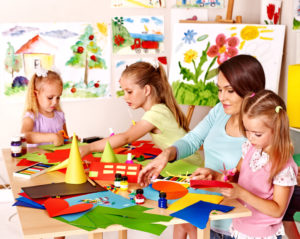 There are numerous factors to consider when choosing a preschool for your family. The proximity to your home and work, the cost, the reputation of the facility, and curriculum philosophy will all likely come into play when making this decision — but your family may also need to take a preschool’s schedule into account.
There are numerous factors to consider when choosing a preschool for your family. The proximity to your home and work, the cost, the reputation of the facility, and curriculum philosophy will all likely come into play when making this decision — but your family may also need to take a preschool’s schedule into account.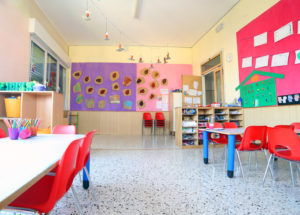 From 1990 to 2013, the percentage of three- to five-year-olds enrolled in preprimary programs like preschool increased from 59% to 65%. Clearly, most parents today understand the importance of enrolling their children in preschool. While finding the right preschool program for one child can be tough, trying to choose the right local preschool program for two students can be an even bigger challenge. If you’re a parent of twins, you may run into twice the difficulty when it comes to deciding on a preschool and preparing your children for this change. We hope the tips below will help make the transition a bit easier for your whole family.
From 1990 to 2013, the percentage of three- to five-year-olds enrolled in preprimary programs like preschool increased from 59% to 65%. Clearly, most parents today understand the importance of enrolling their children in preschool. While finding the right preschool program for one child can be tough, trying to choose the right local preschool program for two students can be an even bigger challenge. If you’re a parent of twins, you may run into twice the difficulty when it comes to deciding on a preschool and preparing your children for this change. We hope the tips below will help make the transition a bit easier for your whole family.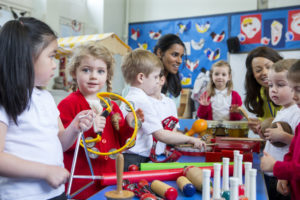 For many parents, picking a local preschool program is one of the first important decisions they’ll make in terms of their child’s education. Not only can attending preschool have a direct effect on grade school readiness for all, but 60% of at-risk children were found to be more likely not to go to college if they didn’t get a head-start with a high-quality education in preschool. Even if you know attending preschool matters, you may not know which factors mean the most when selecting your program. Which are the most important things to look for in a preschool? We’ll explore them here.
For many parents, picking a local preschool program is one of the first important decisions they’ll make in terms of their child’s education. Not only can attending preschool have a direct effect on grade school readiness for all, but 60% of at-risk children were found to be more likely not to go to college if they didn’t get a head-start with a high-quality education in preschool. Even if you know attending preschool matters, you may not know which factors mean the most when selecting your program. Which are the most important things to look for in a preschool? We’ll explore them here.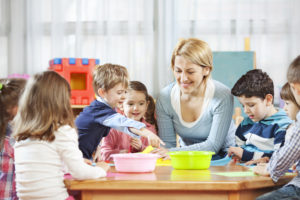 Knowing how to find a preschool that aligns with your parenting style and educational requirements can be tough enough, but in today’s world, families also need to focus on safety. While we can’t always predict accidents, your local preschool program should take the initiative to provide ample protection for students. How can you tell if your child will be getting a high-quality education and be safeguarded against harm? Look for the following signs.
Knowing how to find a preschool that aligns with your parenting style and educational requirements can be tough enough, but in today’s world, families also need to focus on safety. While we can’t always predict accidents, your local preschool program should take the initiative to provide ample protection for students. How can you tell if your child will be getting a high-quality education and be safeguarded against harm? Look for the following signs.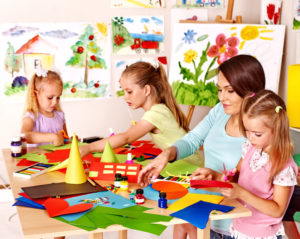 Between 1990 and 2013, the percentages of three- and four-year-olds enrolled in preprimary programs increased to 42% and 68%, respectively. Clearly, finding the right preschool is a top priority for many American families. However, because approaches to early education vary so widely, it can be tough to know what kind of philosophy will serve your child best. A great preschool experience can allow a child to receive an even higher quality education later, so choosing a preschool for your child can be a high-stakes decision.
Between 1990 and 2013, the percentages of three- and four-year-olds enrolled in preprimary programs increased to 42% and 68%, respectively. Clearly, finding the right preschool is a top priority for many American families. However, because approaches to early education vary so widely, it can be tough to know what kind of philosophy will serve your child best. A great preschool experience can allow a child to receive an even higher quality education later, so choosing a preschool for your child can be a high-stakes decision.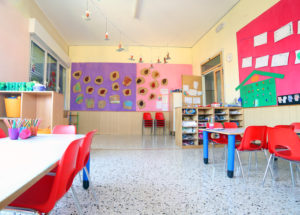 Choosing a preschool for your child is an important decision. There are many factors to consider, which can make choosing a preschool extremely difficult. Parents need to consider things like cost, location, schedule, safety, and discipline. While there are various factors that need to be considered, the school’s philosophy and classroom methods are two of the most important.
Choosing a preschool for your child is an important decision. There are many factors to consider, which can make choosing a preschool extremely difficult. Parents need to consider things like cost, location, schedule, safety, and discipline. While there are various factors that need to be considered, the school’s philosophy and classroom methods are two of the most important.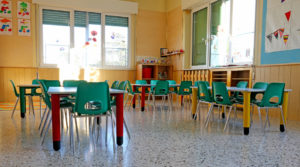 These days, finding a great preschool is a top priority for most parents. After all, the percentage of three- to five-year-olds enrolled in preprimary programs like preschool, nursery school, and kindergarten rose from 59% to 65% between 1990 and 2013. But just because you’ve checked everything off your “things to look for in a preschool” list and enrolled your child in school doesn’t mean that everything will be smooth sailing.
These days, finding a great preschool is a top priority for most parents. After all, the percentage of three- to five-year-olds enrolled in preprimary programs like preschool, nursery school, and kindergarten rose from 59% to 65% between 1990 and 2013. But just because you’ve checked everything off your “things to look for in a preschool” list and enrolled your child in school doesn’t mean that everything will be smooth sailing.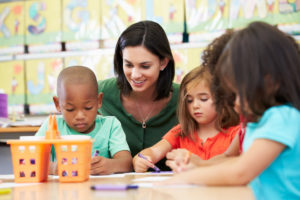 It’s likely you understand the importance of obtaining a high-quality education, and that this foundation starts in preschool. In fact, 60% of at-risk children were found to be more likely to not attend college if they didn’t get a high-quality education in preschool first. Academic preschool programs are now in session. It can be tough for both children and parents to adjust to this new way of life, but experienced teachers and a welcoming environment can make things go more smoothly—and if you know these preschool educator secrets, you’ll be in a better position to embrace these changes head-on.
It’s likely you understand the importance of obtaining a high-quality education, and that this foundation starts in preschool. In fact, 60% of at-risk children were found to be more likely to not attend college if they didn’t get a high-quality education in preschool first. Academic preschool programs are now in session. It can be tough for both children and parents to adjust to this new way of life, but experienced teachers and a welcoming environment can make things go more smoothly—and if you know these preschool educator secrets, you’ll be in a better position to embrace these changes head-on.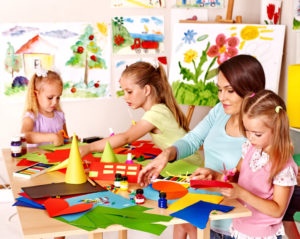 Fall is right around the corner, which means many parents and guardians will be readying themselves and their children to head off to
Fall is right around the corner, which means many parents and guardians will be readying themselves and their children to head off to